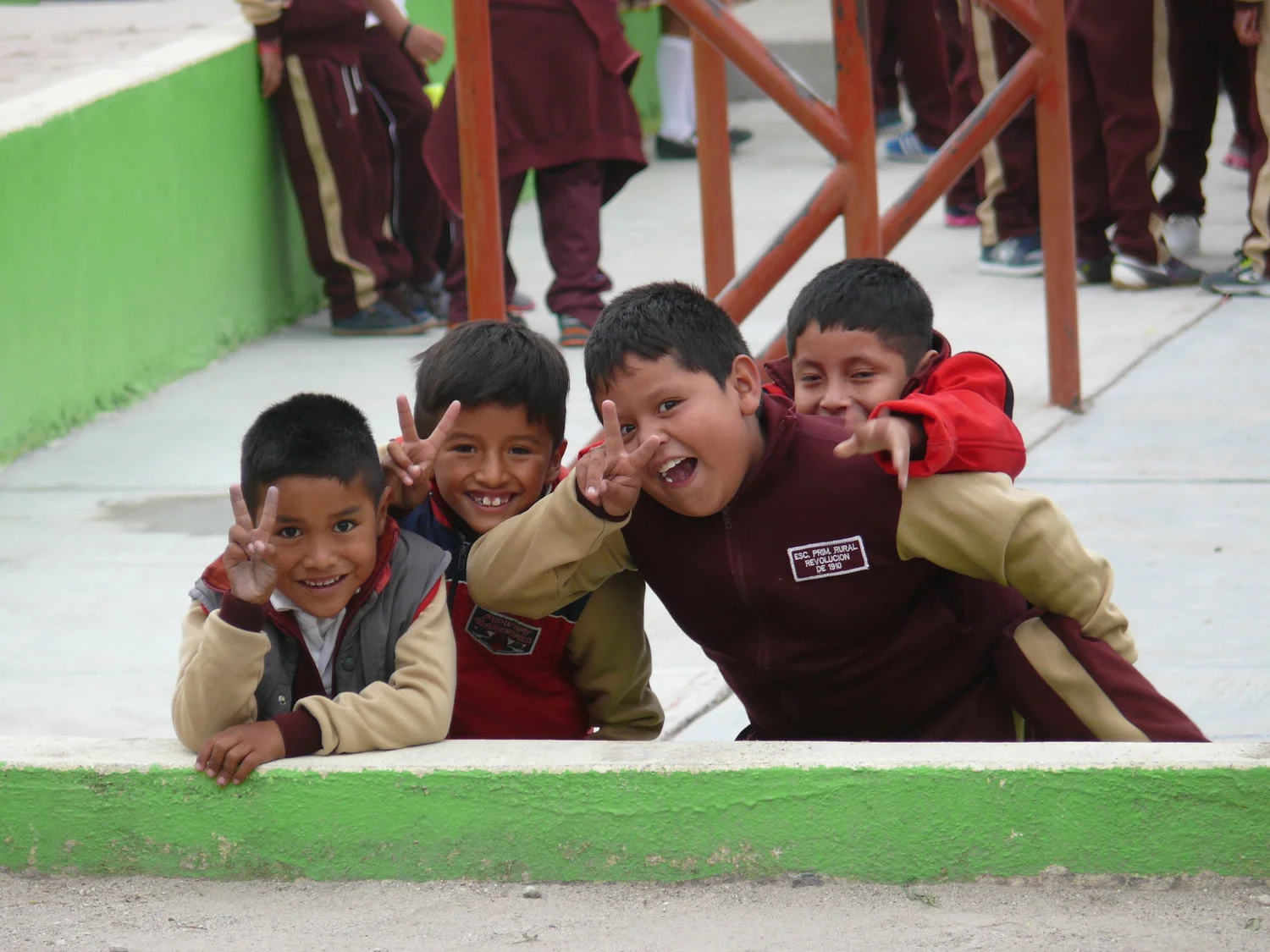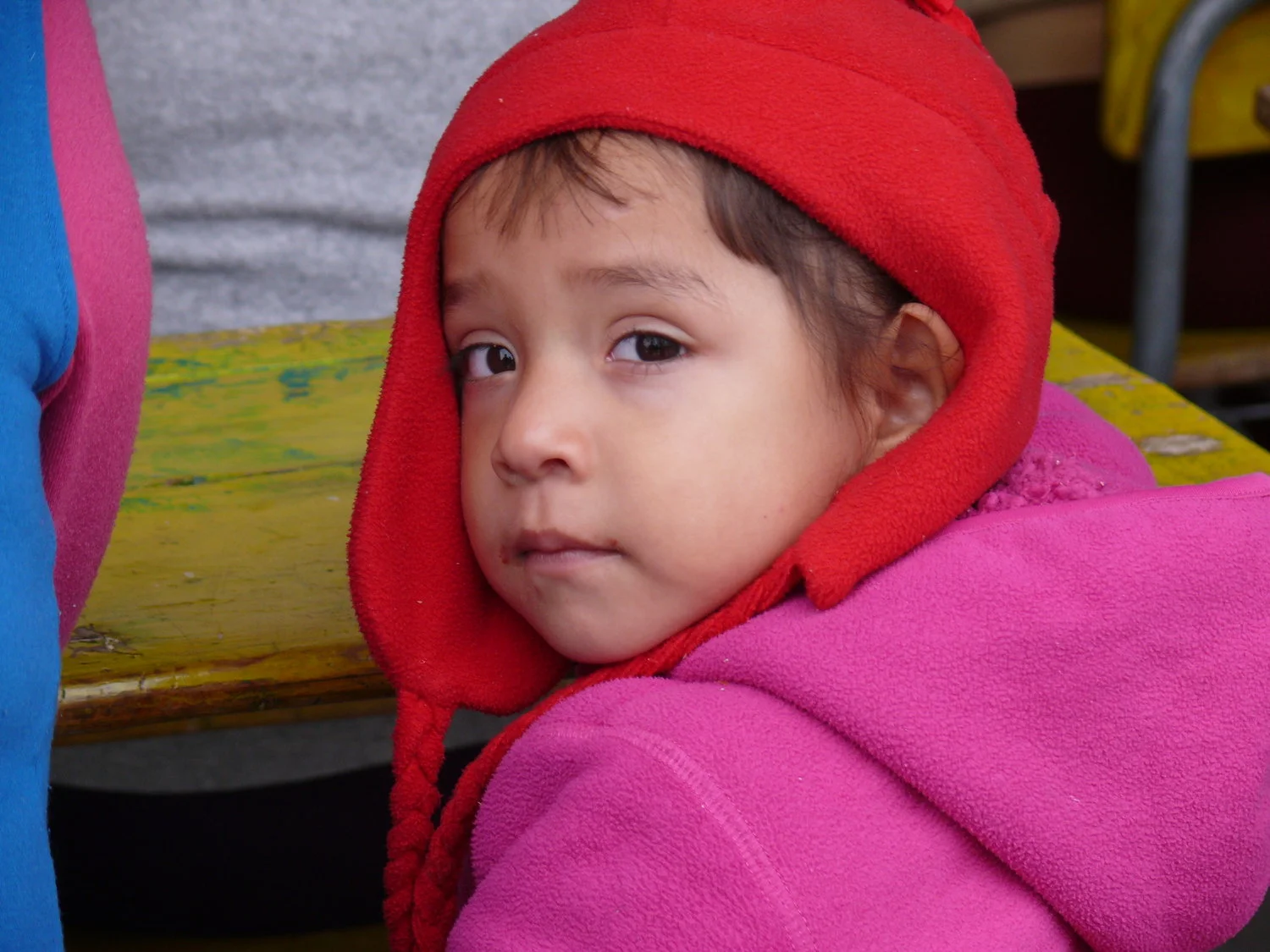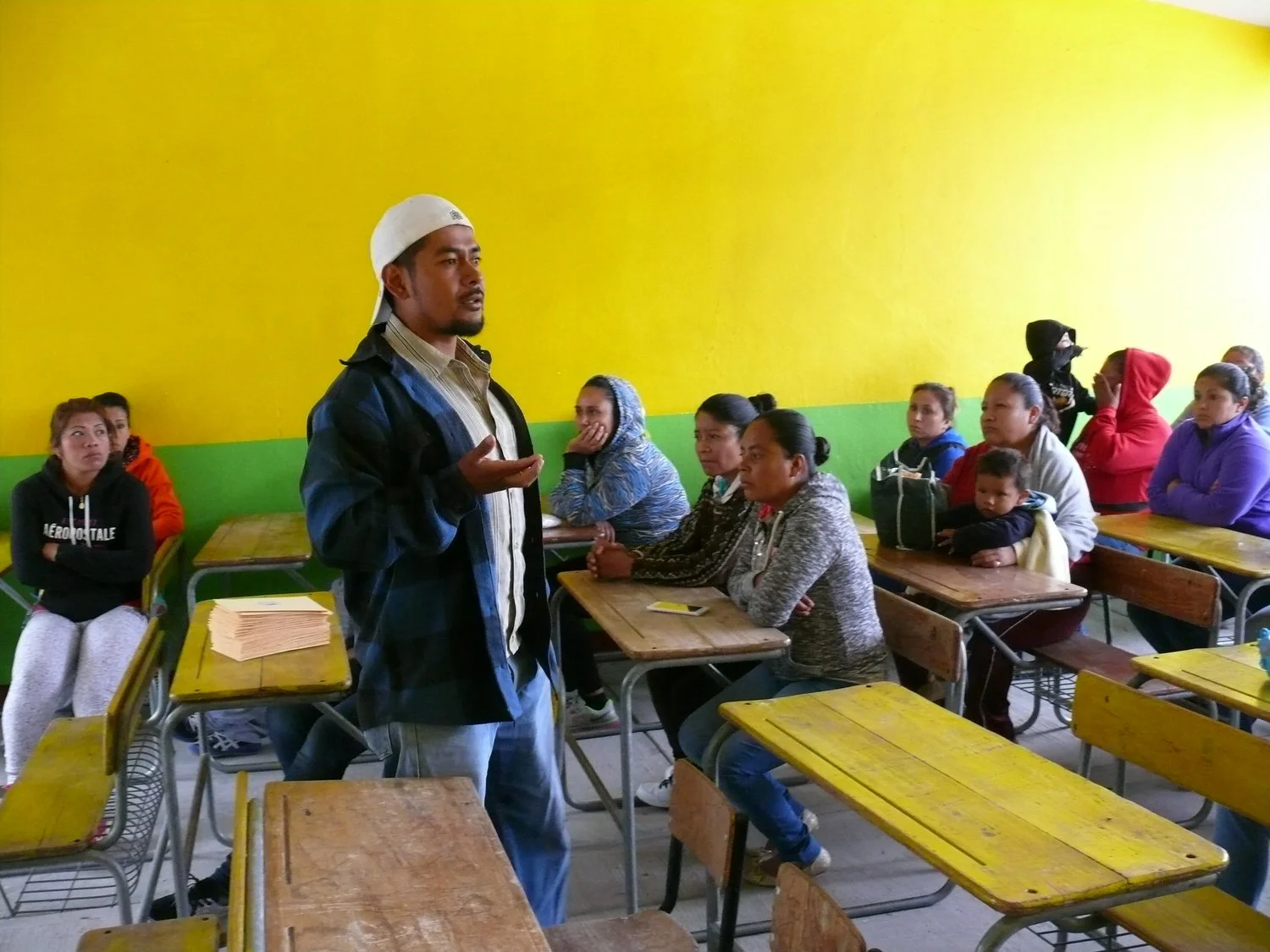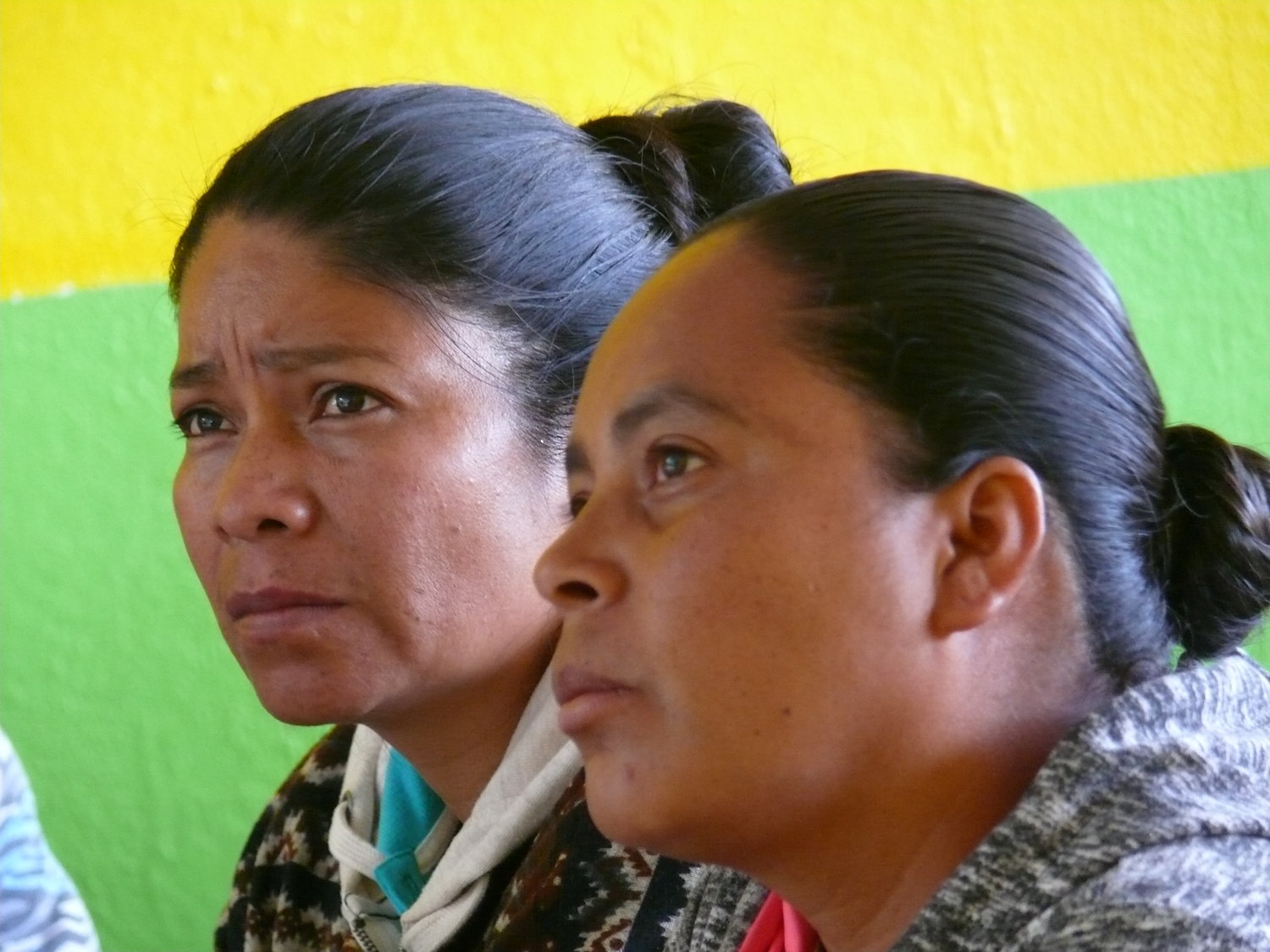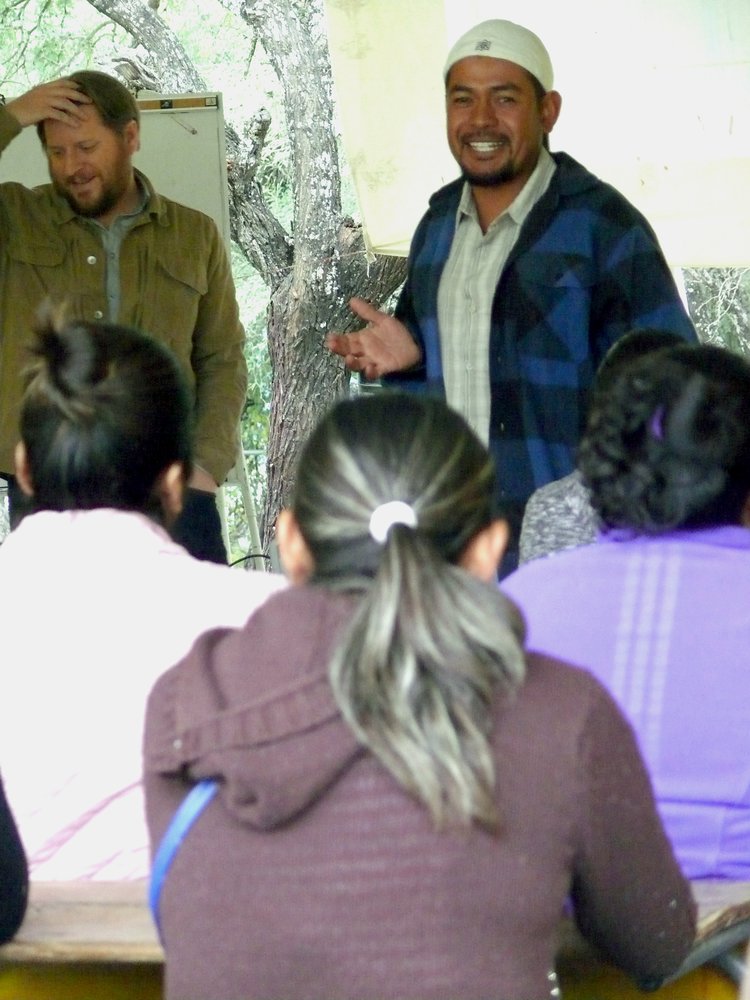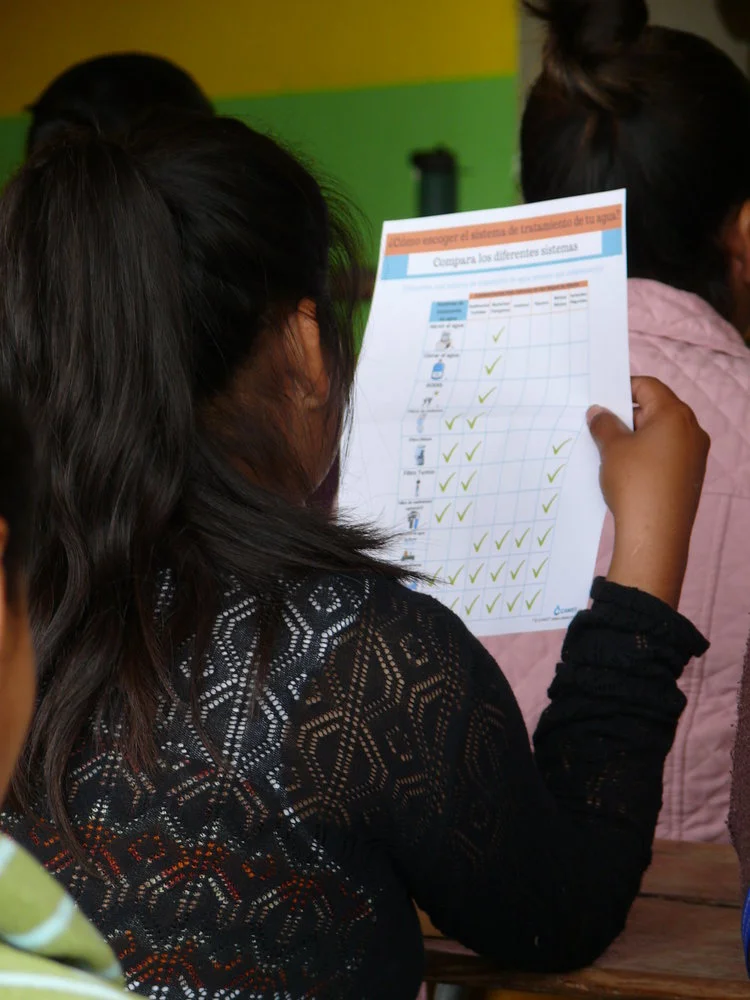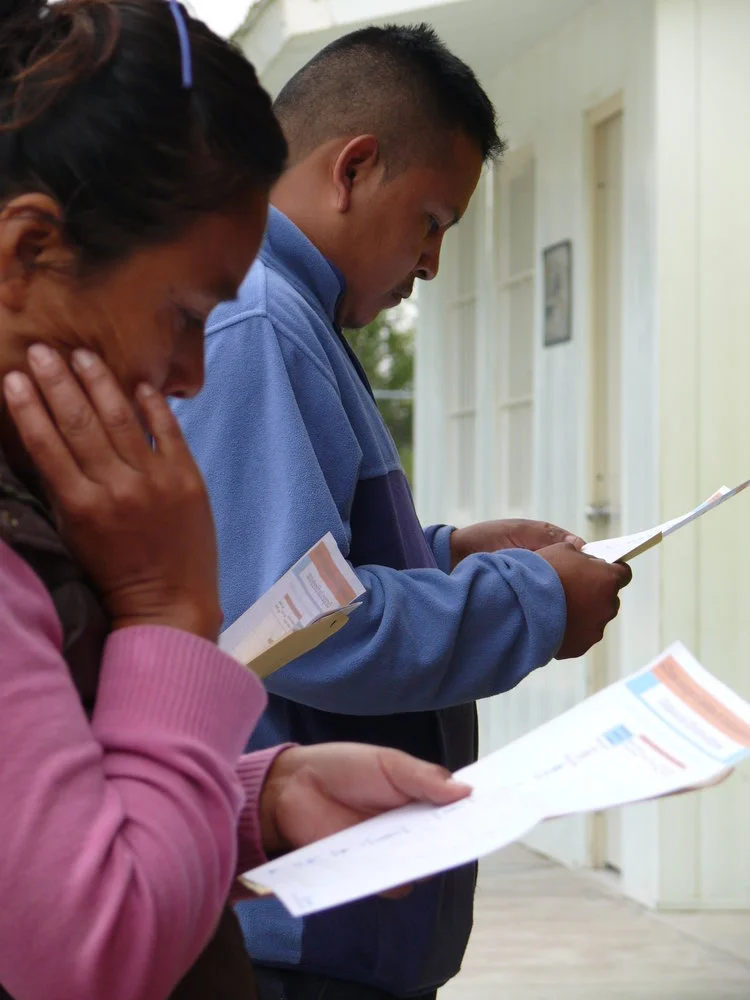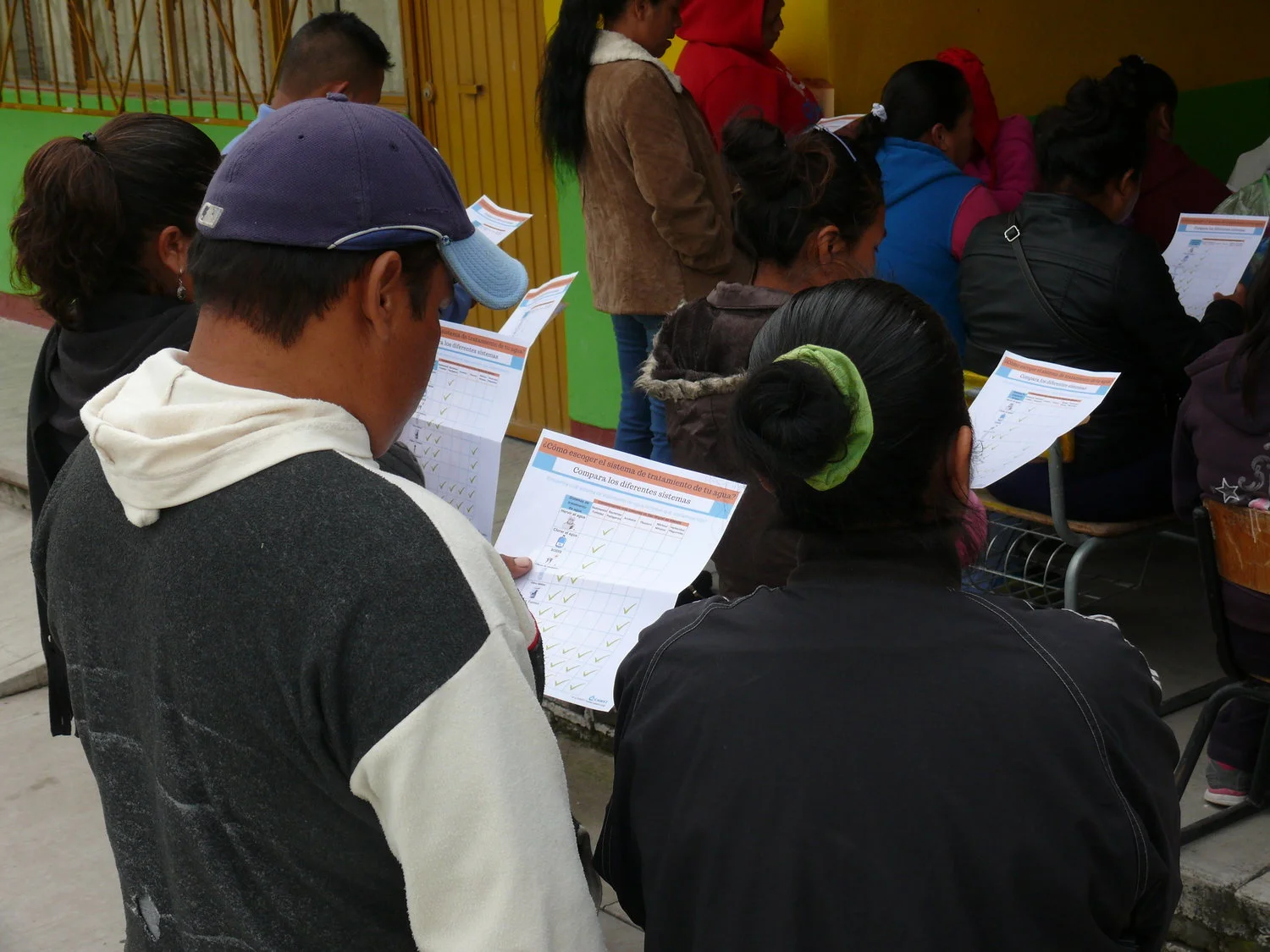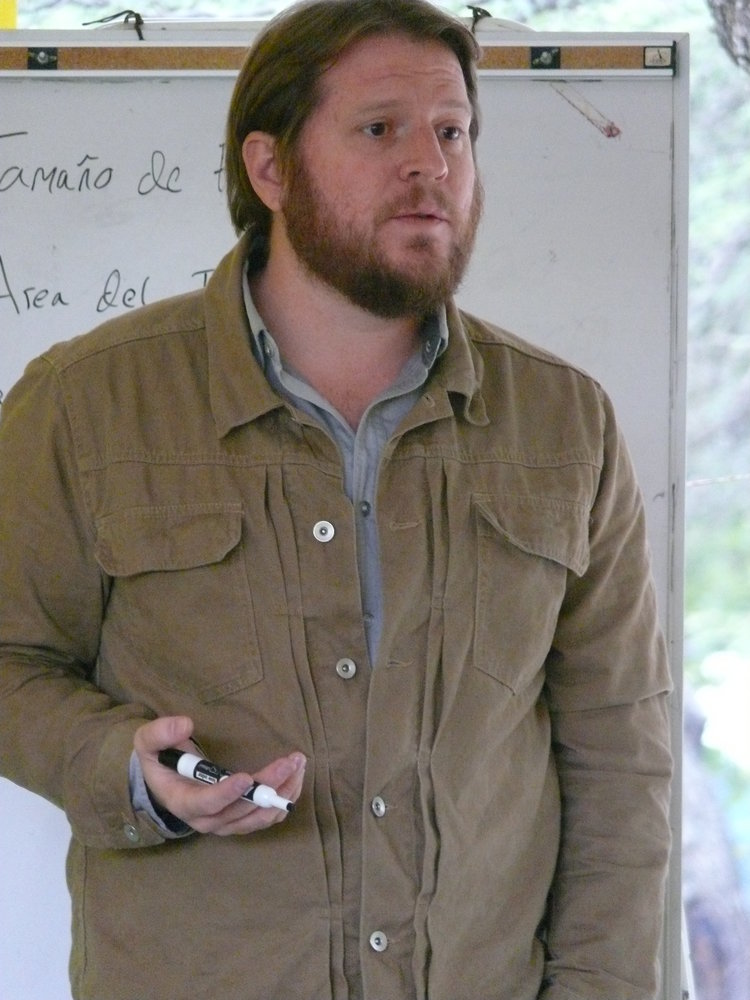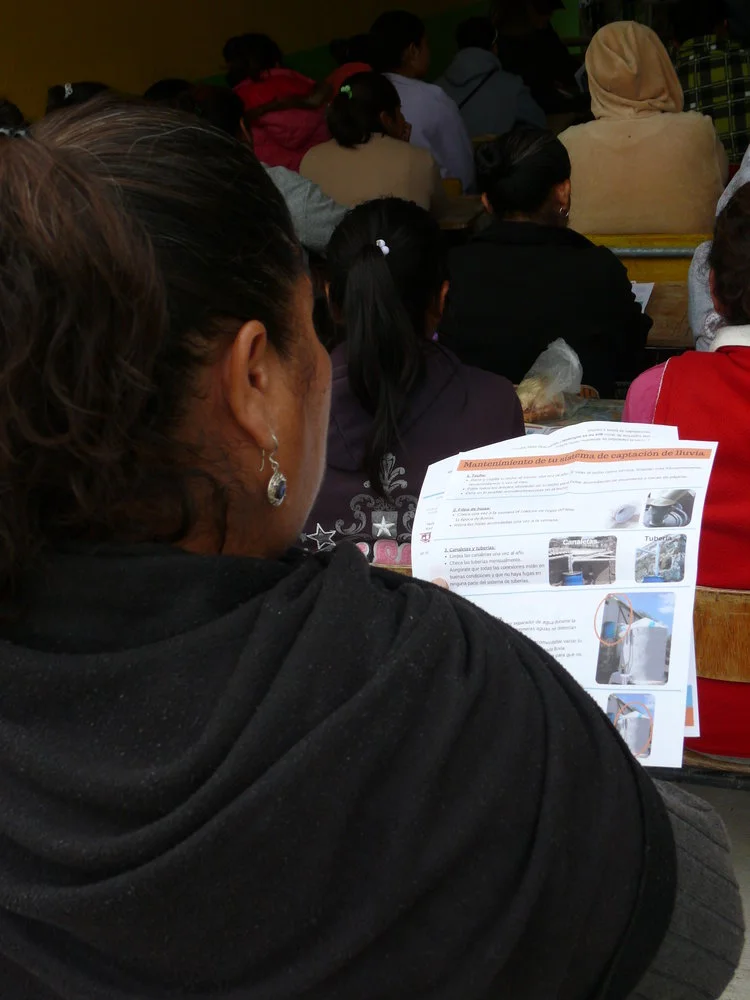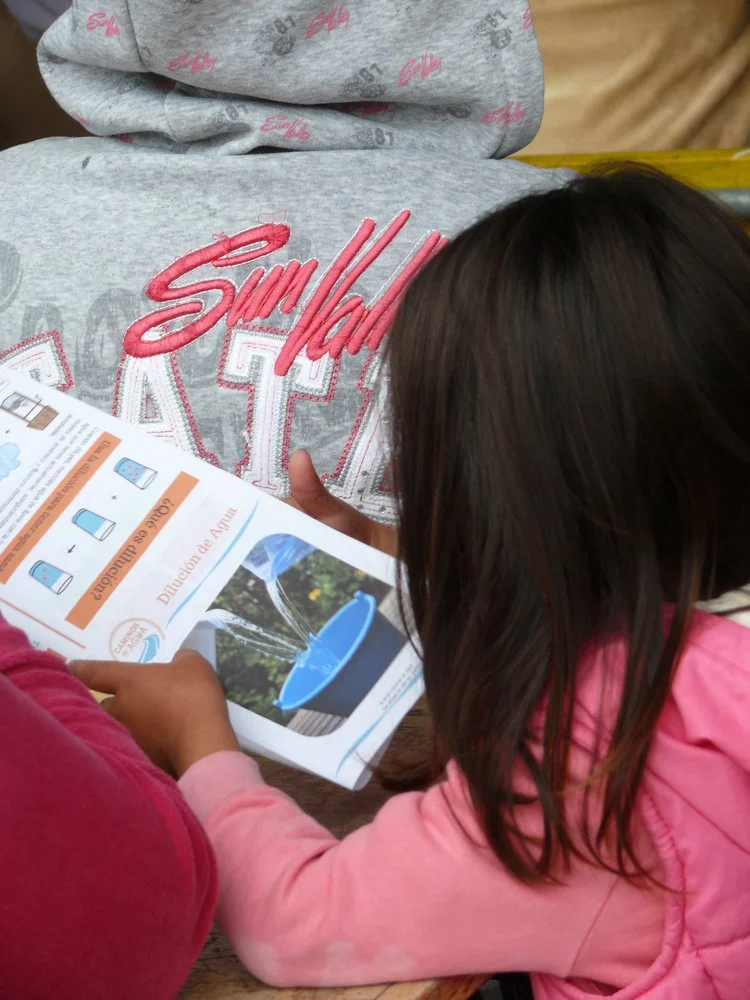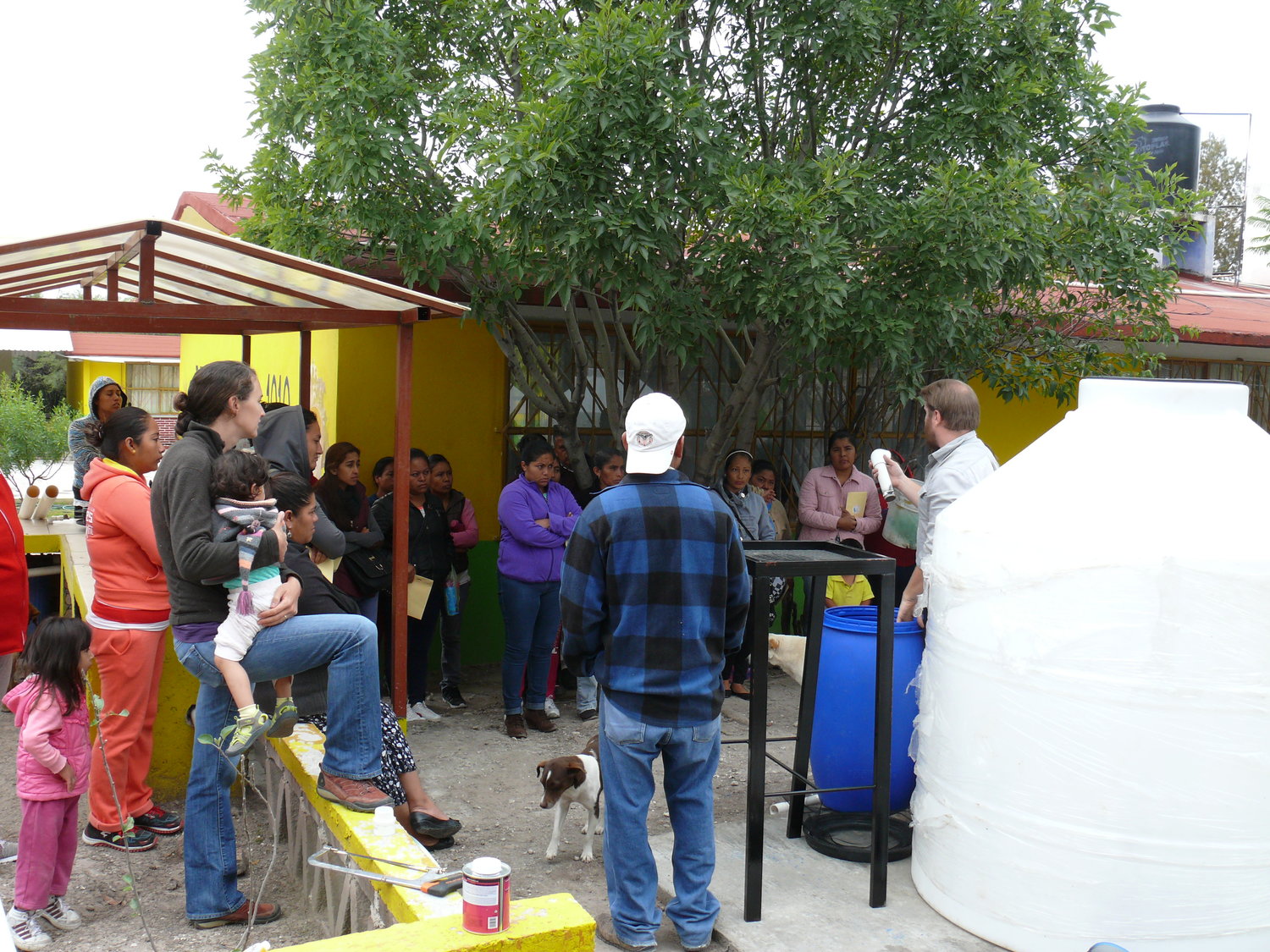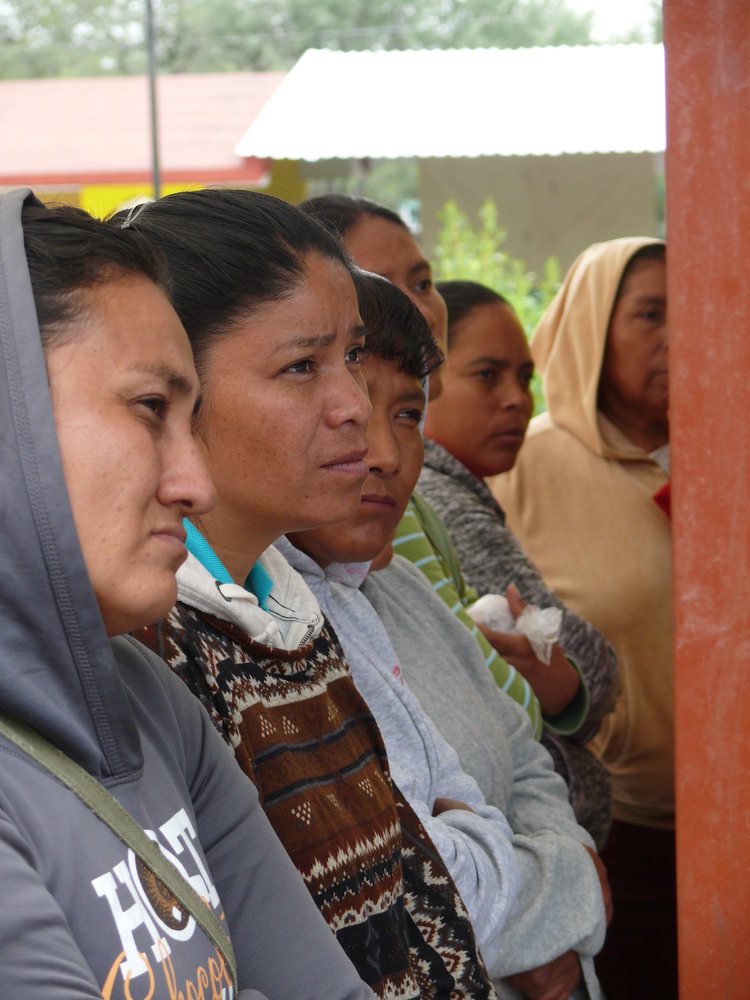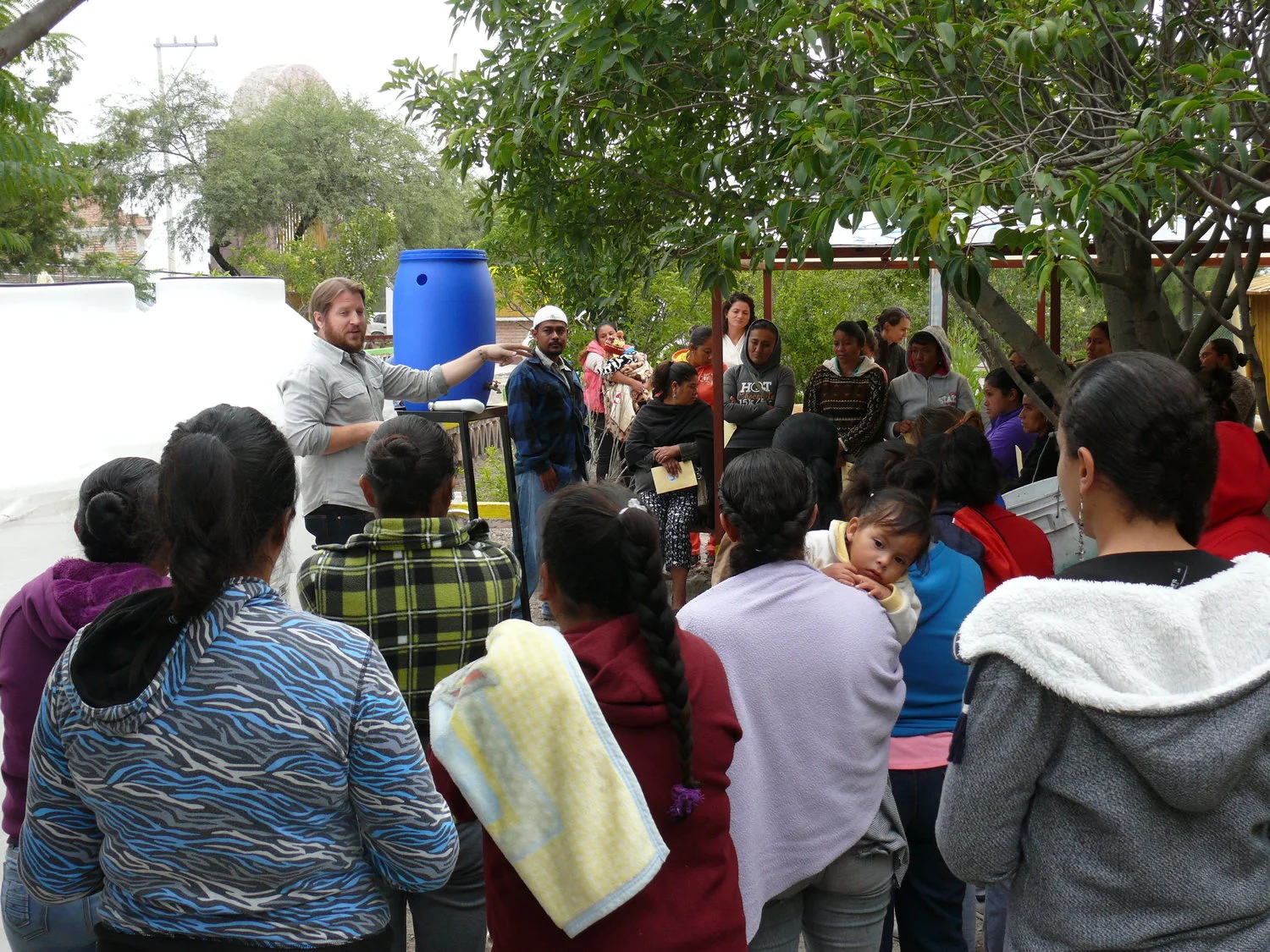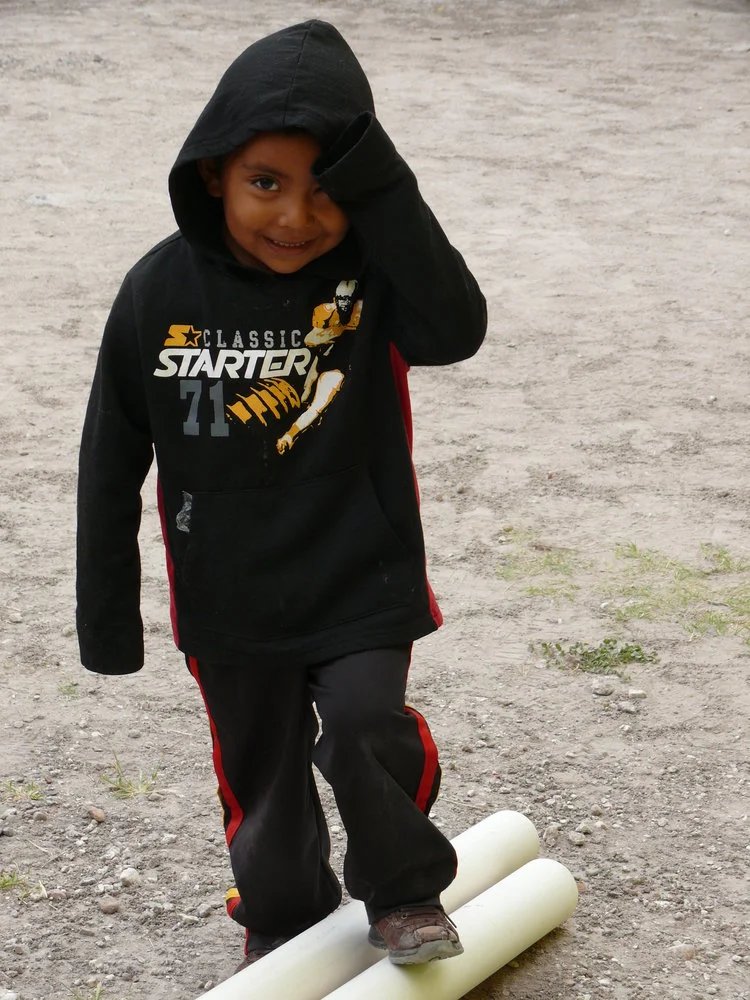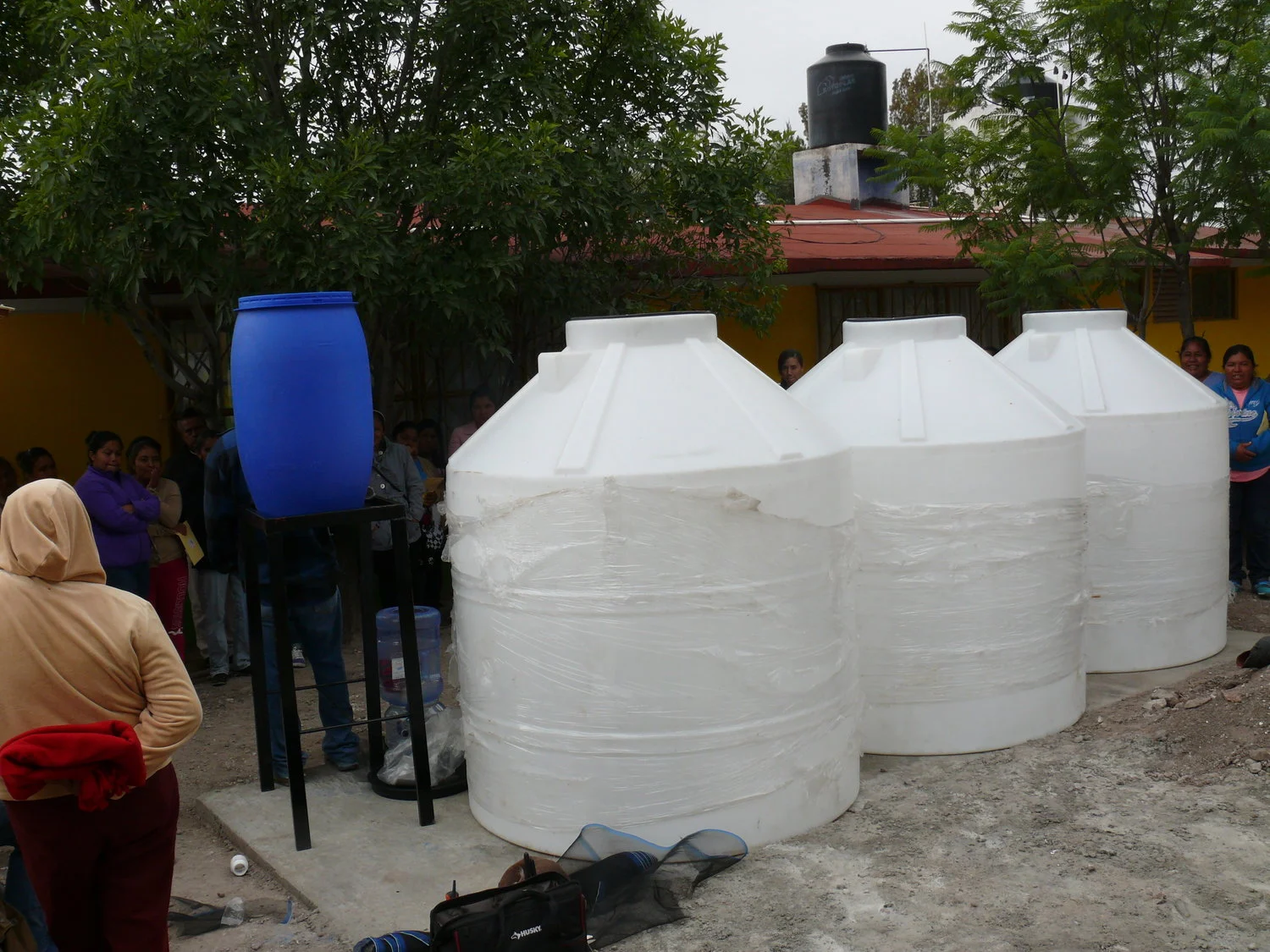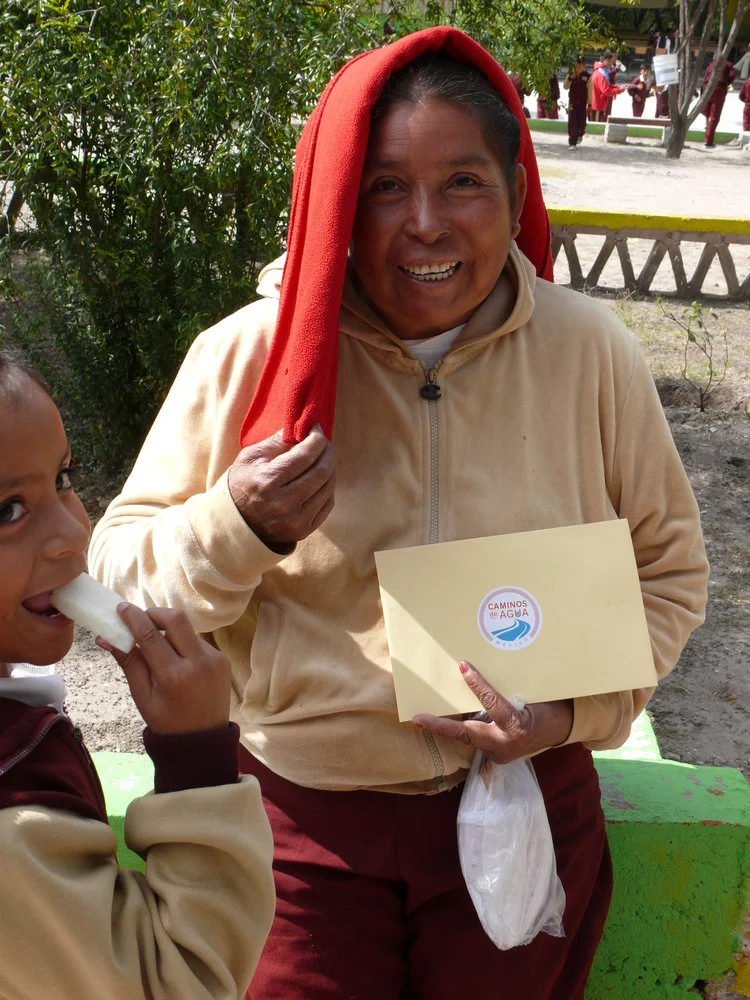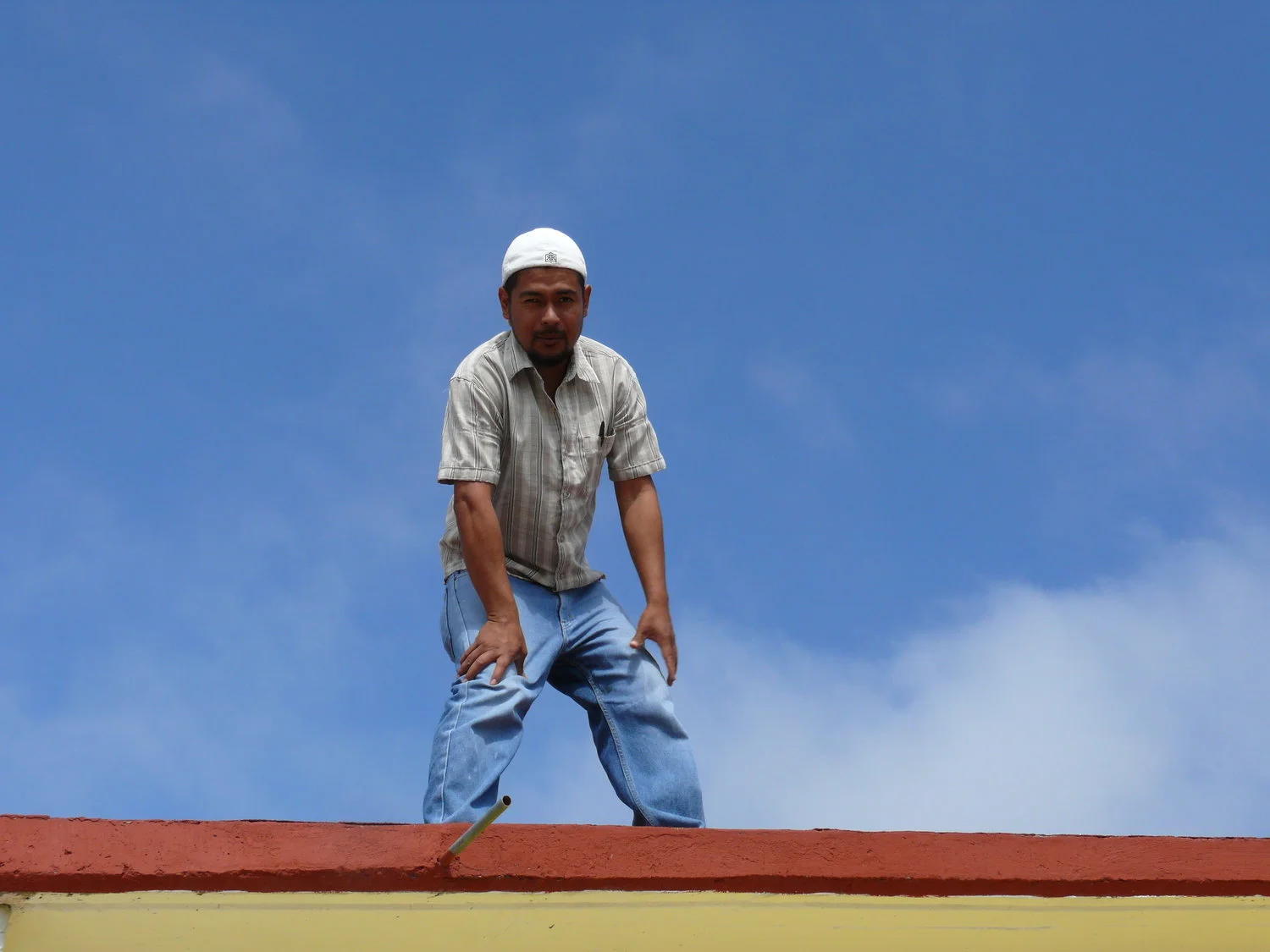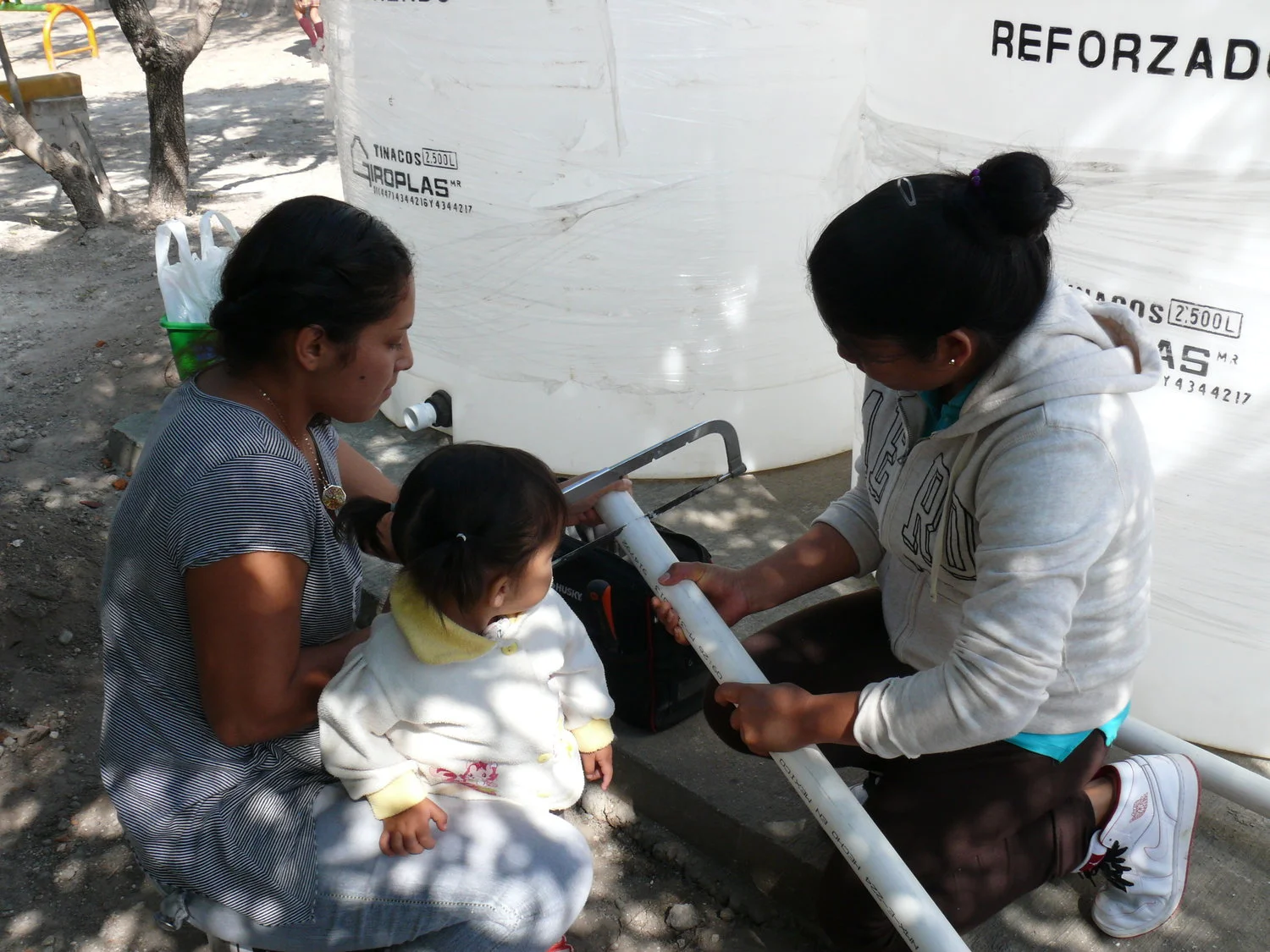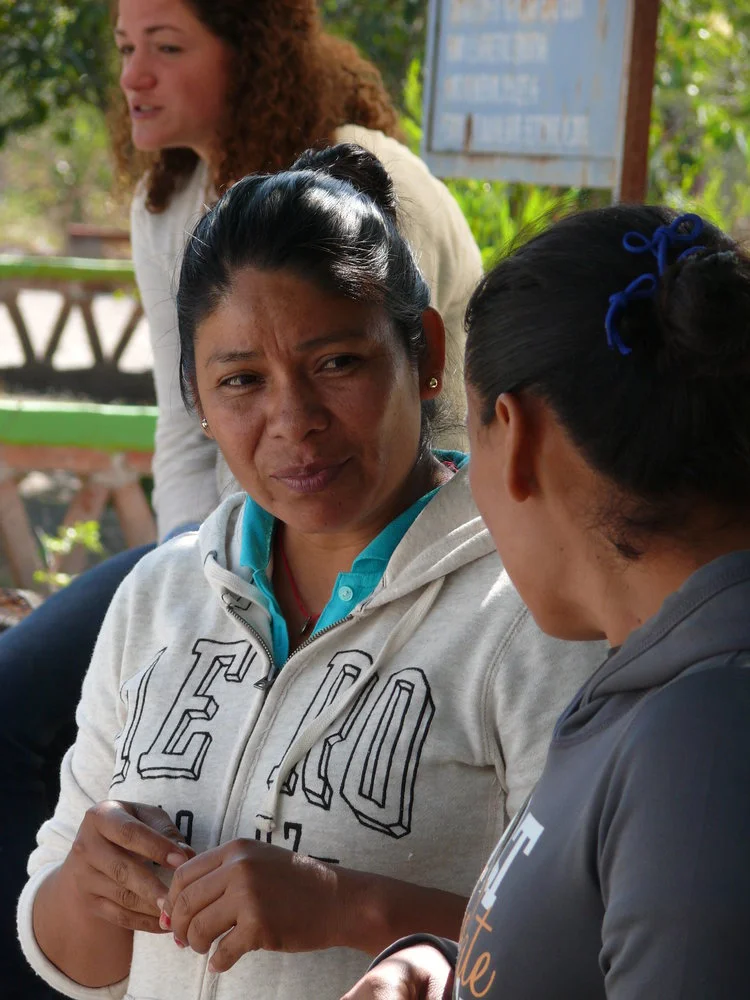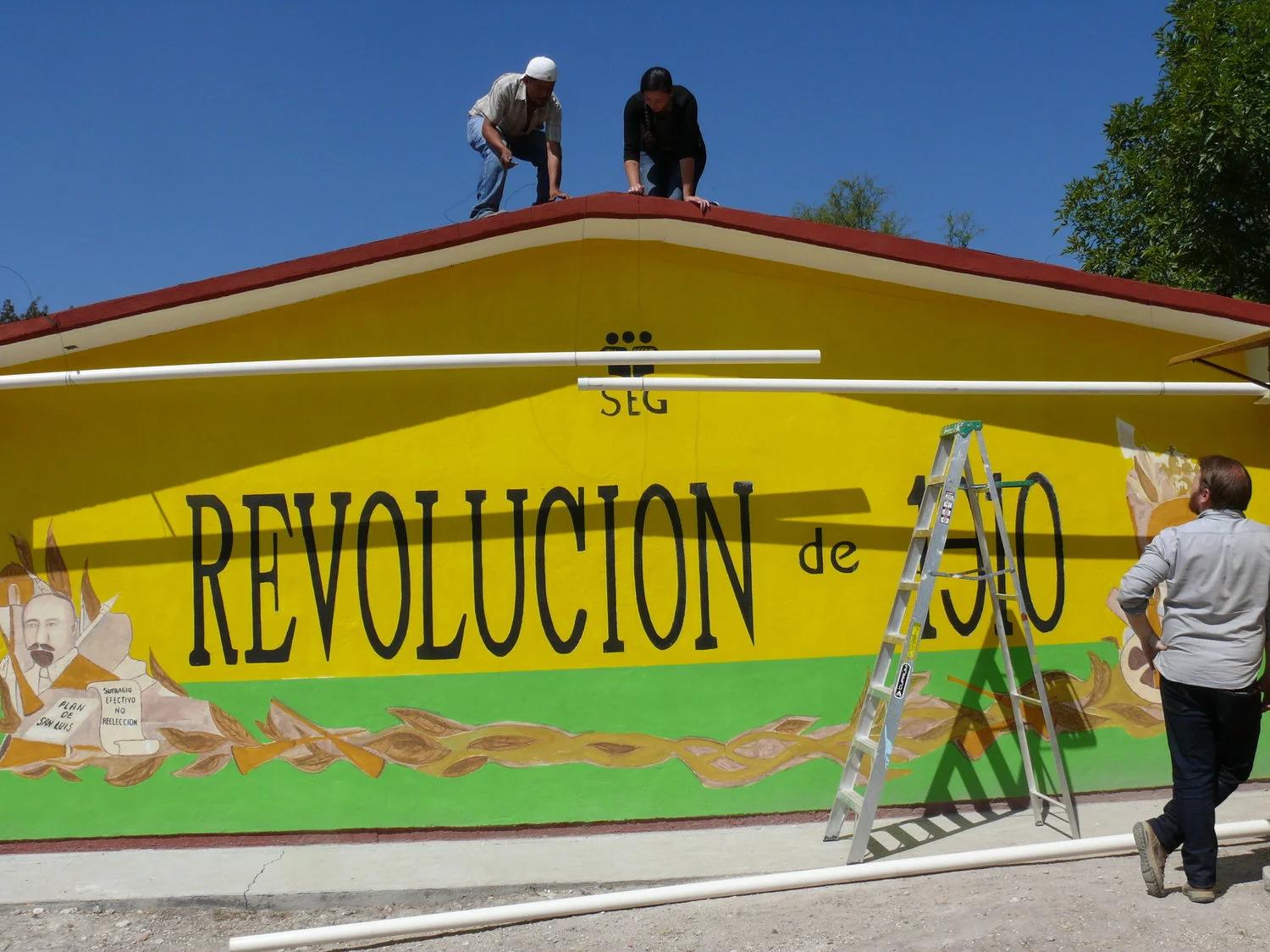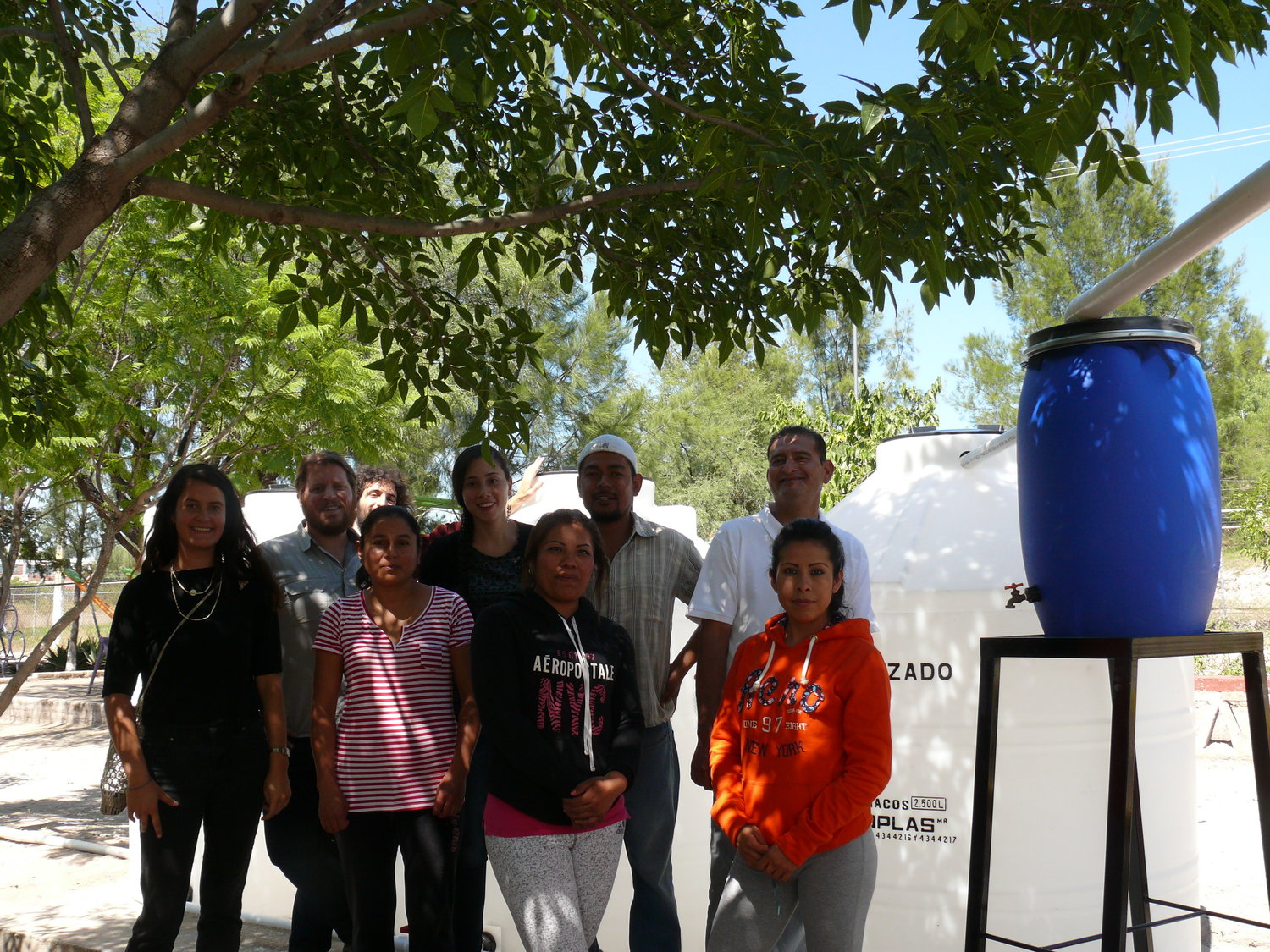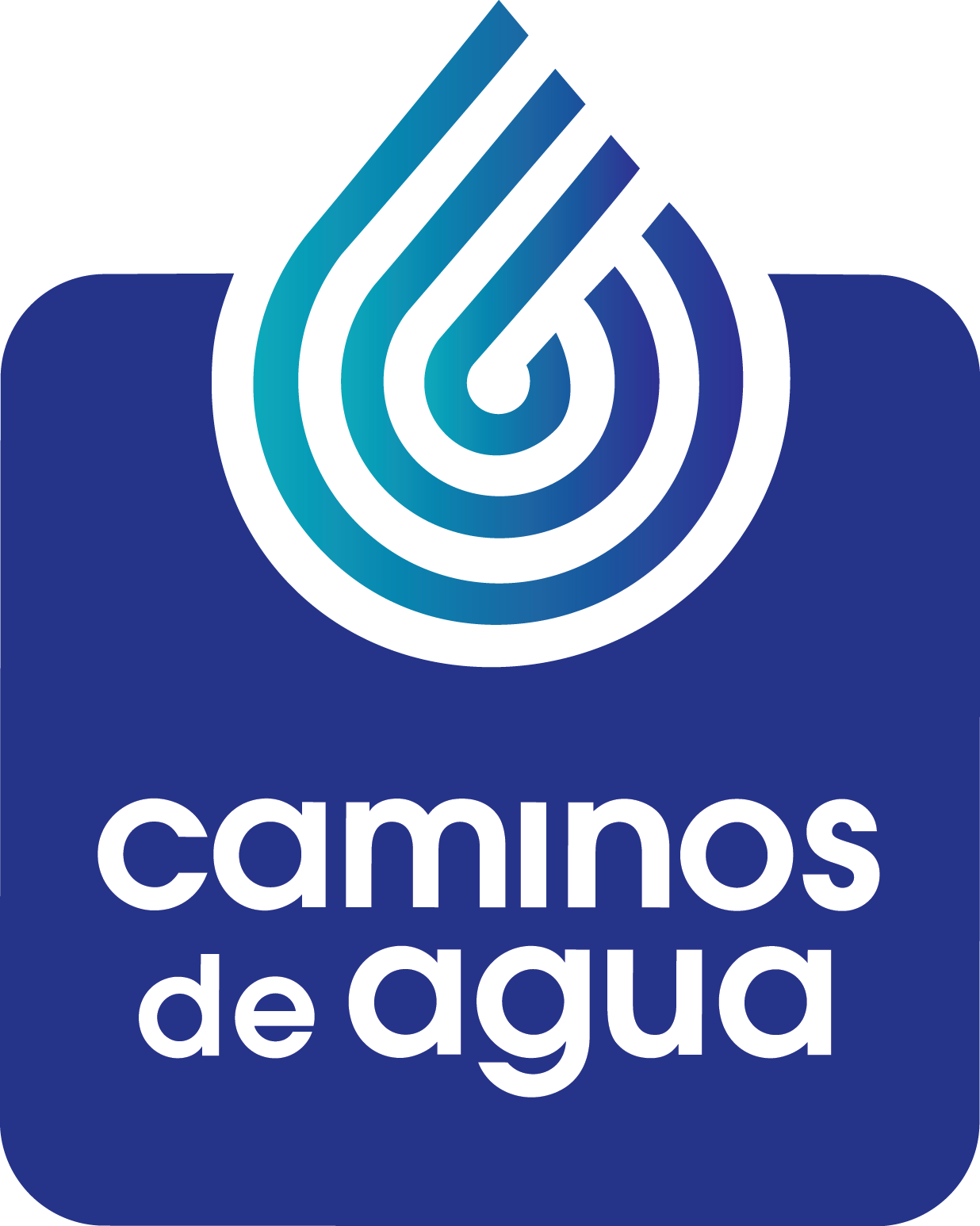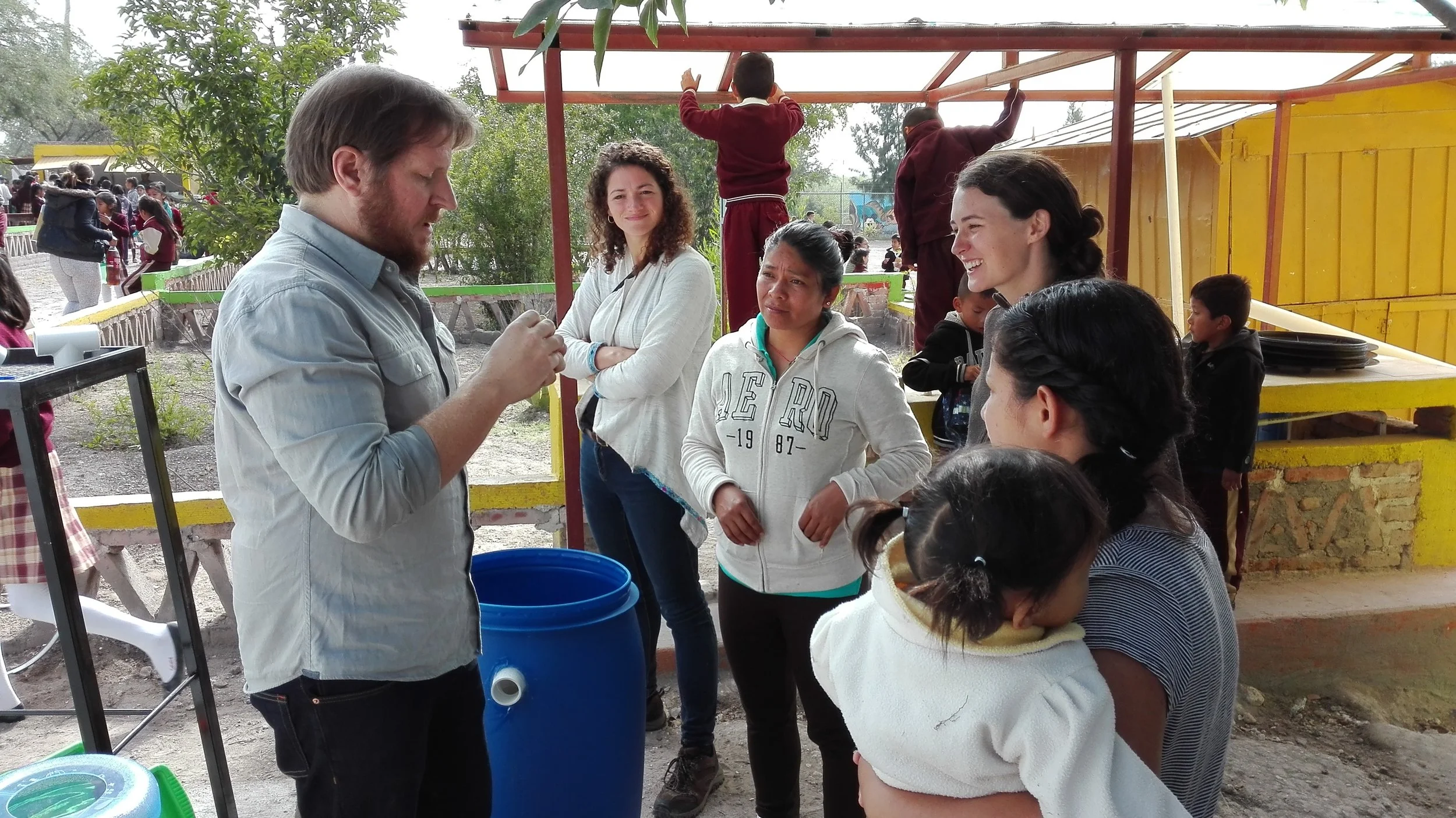Small-scale rainwater harvesting workshop Los Lopez. Using new educational materials
On Monday, October 17th, Caminos de Agua piloted a new small-scale rainwater harvesting workshop in the community of Los Lopez. Dylan Terrell and Saul Juarez started the workshop with a presentation regarding regional water quality and access problems and related health issues as well as the concrete water problems happening in the community itself. Additionally, the importance of rainwater harvesting was discussed.
This was Caminos de Agua’s first workshop fully focused on small-scale rainwater harvesting that can be replicated in community homes for little cost. This model of rainwater harvesting gives people the opportunity to pay for their rainwater harvesting system over time by scaling up year after year. For instance, if a family wants to collect rainwater, but does not have enough money to build or install a large-scale water storage cistern immediately, they can start with a smaller cistern in the first year. In subsequent months/years, when they have saved enough money - they can build or install a second small cistern, which can be connected to the first.
During this workshop our new education materials were used. Communication Fellow, Chantal Kronenburg, worked closely with the entire Caminos de Agua team to design the start of this new curriculum. Different education materials - focusing not only on rainwater harvesting, but also on dilution and the differences between water treatment systems - were designed by Chantal. During the process of designing and developing these materials, the most significant challenge was finding ways to ‘translate’ complex technical explanations into easy, comprehensible materials. Observing the workshop with the community members of Los Lopez, where these materials were used for the first time, seemed to indicate that the materials were well received. Participants read and used the materials effectively throughout the workshop. Caminos de Agua will follow-up soon with some of the community members to hear their opinions and gain feedback from the participants themselves about the materials.
The second part of the workshop was dedicated to building a rainwater harvesting system together with the community members on the Los Lopez elementary school. For this system, we used three 2.500 liter cisterns, which were each connected to one another. This provided the community with an example of how to connect cisterns (the most expensive part of a rainwater system), scale-up the systems over time, and thus how to spread your investment costs over months or years. Participants asked questions throughout the process and became more confident as the system was being installed, showing the importance of being a part of the building process itself.
Instead of using traditional gutters, the concrete roof was adapted with a small vertical ‘wall’ and a slanted line of bricks, which will direct the rainwater to a single point - adapted with a large downspout - and ultimately leads to the water collection and storage system itself via PVC piping. The roof adaptations - as well as the cistern surface - were prepared by the community prior to the workshop. The piping system was installed during the workshop by Saul Juarez, Aaron Krupp, Chantal Kronenburg, and Elena Diek. Dylan Terrell worked closely with local community members to guide the process of connecting the cisterns and installing the ‘first flush’ filter system.
Roughly 55 people participated in the workshop. By the end, community members were informed and received new educational materials to look back on, and the school transformed its water drinking water source from arsenic and fluoride contaminated well water to safe rainwater! The 200+ children currently attending the school will have access to safe, healthy, and sustainable drinking water for the foreseeable future.


